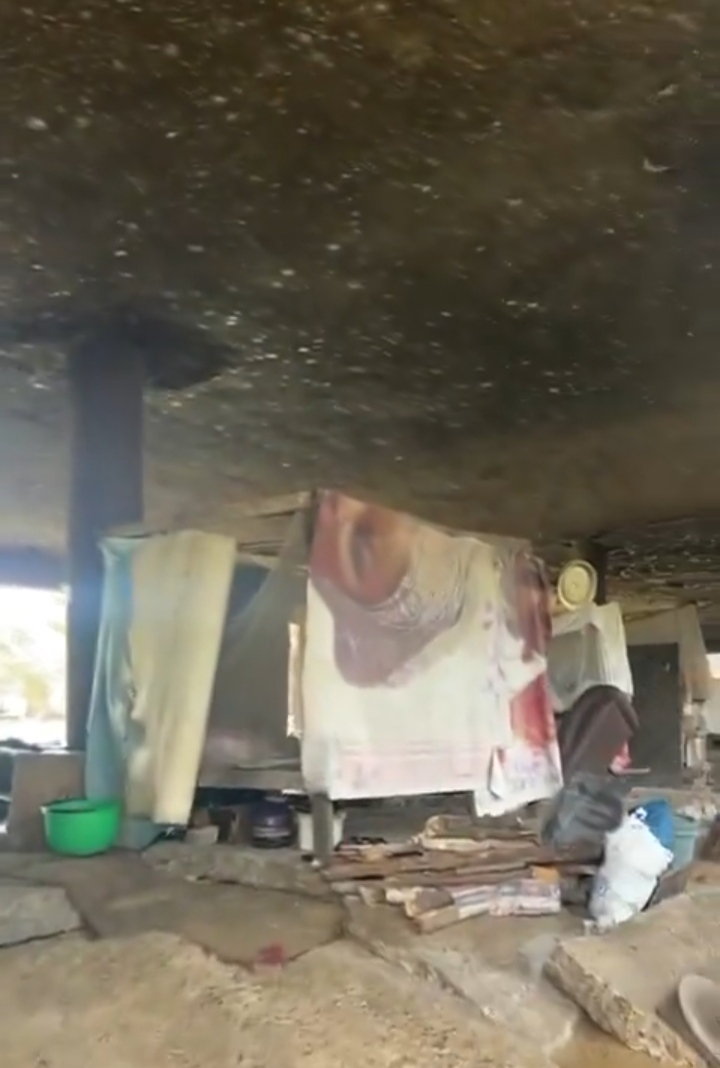PERSPECTIVE: Looking For Simple But Far Reaching Solutions In The Present Crises


- Synergy Needs For A Way Out Of Crisis
Folake Ademiluyi
PRESENT day Nigeria is beset and buffeted with several problems, some of which are self-inflicted.
The biggest challenge is the Japa mentality of the elite who want their bodies enjoying the Nigerian sun but their wants and even needs fed from every other country but not Nigeria. They have lived abroad, seen it all and consider those that have not been outside as lacking in the enjoyment of the finer things of life. Their attempts to live abroad, while simultaneously being in Nigeria, is costing the country a humongous amount of foreign exchange, as they try to show and teach our locals how to live the life!
Below are suggestions borne out of direct participation in contact with and observations of goings on in the sectors mentioned in this writeup.
Foreign Fruits And Their Impact On Nigerian Trees And Fruits:
While every country has a right to trade, it is interesting that Nigerians totally adopt goods from outside the Nigerian economy to the detriment of indigenous alternatives. We practically throw away the baby with the bath water when we replace our indigenous options with foreign substitutes.
In practically every city in Nigeria now and conspicuously displayed are Grapes, Apples, Pears, foreign grown Oranges, Tangerines and even Pomegranates. Meanwhile there are many people who grew up in the cities who have never seen Oro (Irvingia Gabonensis), Iyeye (Spondias Mombin), even wonder what Awin (Dialium Guineense) is and look with disdain or fear at so many other local fruits that where in high demand in years gone by!
The distribution network of the imported fruits is so efficient and the visibility so strong that they have even now become an integral part of Bridal Engagement Dowry requirements. There is hardly any Nigerian town where these fruits are not found.
One can only imagine how much foreign exchange goes into funding this luxury and how much money the foreign farmers and importers are making! Statistics have it that in 2021, Nigeria spent approximately 5M US dollars importing fruits from South Africa alone.
Beyond fruits, even our local Indigo Dye has all but gone into extinction. The Indigo Plant (Indigofera Tinctiria) in the South-Western part of Nigeria, especially, is so hard to come by. Even when the local name Eluu is motioned, there are few amongst those who stock dye that know it. This has led to the use of a synthetic replacement called Indanthrene. Indanthrene is so commonly used now that plant Indigo dyed Tie-and –dye is very expensive and the Art of dying fabrics with plant Indigo would have been lost but for a few people like Mrs Nike Okundaye of Nike Art gallery who are struggling to keep the Art alive. Many nowadays do not know what the plant Indigo dyed cloth looks like because the Indanthrene blue has successfully been passed off as replacement. Plant Indigo is now being advertised for Nigerians to purchase by companies in India. Apart from being used as a dye, Indigo or Eluu as it is called locally has medicinal values.
Effect Of Such Luxuries On Our Local Farmers And Traditional Herbal Medicine:
To most local farmers the indigenous fruit trees have become financially unviable and unattractive. This has made it very easy for such trees to be sacrificed for immediate cash to whoever is the highest bidder requiring land, especially for the building of Housing Estates. Unfortunately, these trees are not needed as fruit trees only. Their barks and roots are also sources of Bio-active components needed and used in our local Herbal Medicine.
Need For Even More Collaborative Efforts Amongst Government Agencies And Bodies
Just recently, September 11, 2023 to be precise, as published in www.thetidenewsonline.com, the Director General of the National Agency for Food and Drug Administration and Control (NAFDAC), Prof. Mojisola Adeyeye, pledged to ensure Nigeria’s Herbal Medicines’ improvement to enable global acceptance.
This desire and resolve must have been borne out of juxtaposing the unrecorded revenue got from Nigeria’s Herbal Products with those produced in India and China. From 2015- 2023, Indian Ayurvedic Medicine generated 626.48M in US Dollars while the Chinese Traditional Medicine (TCM) market size in 2022 was 28.7Billion in US Dollars, according to statistics posted on the internet.
How will NAFDAC achieve its objective when the trees needed for this very important purpose are being felled indiscriminately?
Some of our Trees used in Herbal medicine like the Asofeyeje Tree (Raulfia Vomitoria) have to be sourced by sellers of Herbs in neighbouring countries to meet demand.
There is a need for Forestry Agencies and those involved in licensing Estate Developers to ensure that trees to be felled to make way for Estates are propagated through cuttings and transplanted.
Estate Developers should be encouraged to plan green areas that will involve the replanting of cuttings from the trees they fell to prevent these trees from going into extinction. There is also a need for the encouragement of the growing of Orchards of indigenous Fruits and also the conservation of some Forests to ensure the preservation of our precious trees for their medicinal wealth.
When Agencies and Bodies work assiduously, better results will be got if their goals and efforts are congruent and meet at a point.
Suggestion
While Nigeria must allow Free Trade, she must also always have the great number of Nigerians in the Diaspora in mind and work to export even our own indigenous fruits, properly and beautifully presented. The relish with which they are eaten by this group will act as attraction and selling point to indigenes of their host countries. Efforts should also be made to give necessary support and incentives to our local farmers to make these fruits as readily available as the foreign alternatives. Propagating love for these fruits locally will increase their local demand and this will help to entrench their demand by Nigerians even when they are outside the country, thereby promoting earnings from export. This is aside from other very useful benefits of these trees.
The Way Our Businesses Leave Our Shores:
When many Nigerians go abroad to live and do business, they carry with them money that is barely enough and this limits them and their activities to the downtown areas of the host countries. This exposes them to attacks by hostile members of these countries.
A careful and deep look at how Indians, South Africans and Chinese do business reveals a system where resources are pulled together to rent shop space in uptown areas and the shop space partitioned to accommodate all subscribing vendors. This gives more security and even greater respect and acceptability.
The Use Of Our Diaspora
The major benefit derived from our Diaspora presently is remittance of money for family support back home.
Unfortunately, most times, the money is used locally for essentials that ultimately do not generate any further income beyond what it was remitted for.
Suggestion
Our Nigerians in the Diaspora can come in even handier if they are encouraged to form Business Councils e.g. Nigerians in Canada-Nigeria Business Council, Nigerians in UK-Nigeria Business Council etc. These Business Councils will have official and legal bilateral relationships with interested Nigerians in Nigeria. They will operate exactly like the Business Councils that have helped foreign Countries to trade with Nigeria. This kind of arrangement will help limit the number of Nigerians wanting to leave the country to fend for themselves since the bilateral arrangements will ensure that all business interests are legally protected.
Such an arrangement will also help to boost the activities of the Marketing Boards that the present administration is looking at re-introducing and also help with backward integration of ideas, education and other inputs that will facilitate trade in a way that Business Councils of other countries cannot afford to do. The Diaspora partners will act with vested interest that is geared towards developing their own home country.
Nigeria has had a very long standing relationship with countries like the United Kingdom yet there is no Nigerian owned Warehouse that serves as a one stop place for Nigerian Food Ingredients. Nigerian Food ingredients, as indeed African and West Indian Foods are brought into the UK by Indians, Lebanese, Syrians and recently, a very few Nigerians who are just veering into the business of Nigerian Food Ingredients.
Nigeria Diaspora Business Councils, as proposed, will ensure that problems that could attend the importation of goods from Nigeria are handled offshore while their bilateral counterparts resident in Nigeria, with the aid of the proposed Marketing Boards, will ensure that goods sent out of Nigeria meet international standard and specifications, as advised by those offshore. Problems that cause refusal of Nigerian Food Ingredients like that posed by the use of pesticides will be addressed since the Diaspora partners will also be informing and educating local Farmers and commodity marketers. Ingredients can then be exported in bulk to the off shore Nigeria Diaspora Business Partners, who in turn, will ensure that appropriate packaging, is provided at their own end and the different goods packaged for the shops. The packaging can then read- produced in Nigeria and packaged by the Diaspora Company or Body. This will help lift that particular burden off the shoulders of the bilateral partners at home and make the cost of export cheaper.
With this kind of cooperation, there will be no need for Nigerians at home to look for travel opportunities to carry small consignments of their products. Their commodity will be taken off them at fair trade value right here in Nigeria without the local partners leaving the country.
HOTELS AND TOURISM:
Nigeria is blessed with a lot of potentials to become a Tourist’s destination place. Unfortunately, most of the Hotels available do not measure up to any standard for rating Hotels. It is bewildering that an investor will build and guild his Hotel without considering staff. He ends up putting a board outside announcing vacancies for just any passerby! The result is that the Hotel will be poorly run and will actually be run down in a couple of years.
SUGGESTION:
To meet the shortfall in trained hands in the Catering and Hotel Management Industries, as indeed many other vocations like the Building and Construction Industries, there is a need for intermediate Training Schools like the Railway Training Institute at the Railway Compound, Ebute Meta, Lagos, which was originally set up to train staff to meet the needs of the Nigeria Railways. The School accepts students who have attempted the West Africa Examination Council (WAEC) examination, the National Examination Council (NECO) examination or the National Business and Technical Board (NABTEB) examination. It runs Courses in Engineering at intermediate levels and accepts The Junior WAEC results for courses like Fashion and Carpentry. All Courses run for 3years. Such intermediate schools, if established everywhere, and other courses like Catering and Hotel Management, Care Giving etc introduced, will help to relieve the pressure on the Universities and Polytechnics because the number of students trying the Joint Admissions and Matriculation Board examination will be reduced. Besides there will be fewer drop-outs as training in such a school is set to achieve the purpose of giving proper education at intermediate levels to these set of children in an environment approved even by parents. Students also get the opportunity to re-sit NABTEB and NECO as the subjects needed to pass these examinations are also taught. It also helps to prepare students to perform better in the Universities and Polytechnics when they enter. Those who go through such Training are better prepared for the job market even if they do not enter Higher Institutions.
The proposed Intermediate School is different from the regular Vocational/Skill Acquisition School because the students in an Intermediate School like the Railway Institute get to be taught some relevant subjects that are taught in regular schools e.g. Physics, Mathematics, English and Technical Drawing etc. This gives students who are weak in the subjects another opportunity to learn in an organized and recognized system while learning skills. It is also different from the Remedial Schools that teach students who did not make their papers in WAEC, etc. In the Remedial Schools the focus is on passing WAEC, etc to be able to enter the Higher Institutions. Skills acquisition is not part of the curriculum. Students who go through Remedial Schools have to continue repeating the Programme till they are able to pass WAEC and/or JAMB. Whereas children who go through the Intermediate Schools are prepared to fit into the society since they can fend for themselves, having acquired skills and they can also opt to go into Higher Institutions if they pass the necessary examinations.
If the Federal Government can set up such Intermediate Schools in each Local Government and the States encouraged, following the example in some of their Local Governments, it will be easier for simple agricultural implements suited to help enhance and facilitate agricultural operations in the local communities to be fabricated.
Besides, children in rural communities who do not make the grades to enter Higher Institutions will not be left stranded in the lurch.
CONTRIBUTION OF COMPANIES AND PROFESSIONAL BODIES:
Companies, e.g. Cement Manufacturing Companies can be encouraged to have a Chair in the Intermediate Schools to support the teaching of Bricklaying and plastering, Tiling, Plumbing etc as part of Corporate Social Responsibility. Other companies in the Food Industry can also be so encouraged to show Corporate Social responsibility by supporting the teaching of Catering and Hotel Management, Car Assembly Plants and other companies in the sector can also be encouraged to support Auto Engineering and Driver Training Courses in the schools. Professional Bodies can be approached to introduce Basic Programmes that will prepare the children to be future members of the Bodies.
This is would be a way to reduce the cost of running these Schools and ensuring that standards are maintained.
COTTON AND CLOTHING:
Nigeria has been struggling with meeting the clothing demands of her citizenry. To bridge the gap, second hand clothing is being imported continuously. This is really puzzling considering that there are so many tailors in Nigeria.
In the sixties, during the heydays of the Textile industries in Nigeria, there were budding Clothing companies like Sterling Blouses whose factory was in the now demolished Sabo Industrial Estate, Yaba, Lagos and some others. They broke through the stringent standards set by shops like the defunct Kingsway Stores and Leventis Stores who erstwhile sold imported goods exclusively. These local producers’ products made the mark and were accepted into these high end Stores.
Gradually, such factories folded up and the only small scale Garment production companies that are thriving outside the Aba production zone today are Tailors who sew uniforms and also those who sew Jersey materials into T shirts.
SUGGESTION:
Nigeria should, as a policy, decide not to allow her skills and vocations to be hijacked by foreigners. For so long the Textile Industry has been dominated by foreigners with the result that they dictate what happens in the industry. There is an urgent need for scholarships to be given to Nigerian Youths to study Textile production outside the country. When they return, enough support and motivation should be given to them to operate in an industry that is now practically, solely and squarely in the hands of foreigners. Such trained Nigerians will be in a better position to give the kind of good and unbiased advice to Government that foreigners cannot afford to give because of their own interests.
SEWING HUBS:
There is a great improvement in the quality of designs being turned out by our Bespoke Tailors and Fashion Designers. Sewing Hubs and indeed Shoemaking Hubs should be set up to produce industrially and sold garments and even shoes in shops locally and for export. This is necessary even if the target is children, to help reduce the cost of raising children.
As a whole, Nigeria should, as soon as possible, set quality standards that are both affordable and attainable locally to prevent the different industrial sectors from being hijacked by foreigners and stop the country from being a continuous dumping ground for different inferior products and skills from outside. There is also a constant need for information for the re-orientation of our Elite and Youth especially. The need to connect with everything other than Nigeria is saddening and also reflected even in our films and skits. Our influencers hardly want to be seen in Nigerian colours whereas Ghanaians are so proud of their colours that they fly them as either as wrist bands, hair ornaments, Afro centric jewelry, etc at every opportunity. We should set up competitions for young people for T-shirt designs and other presentations that will make them fall in love with Nigeria, warts and all.
- The opinions expressed in this publication are those of the author. They do not represent the opinions or views of Osun Defender.










